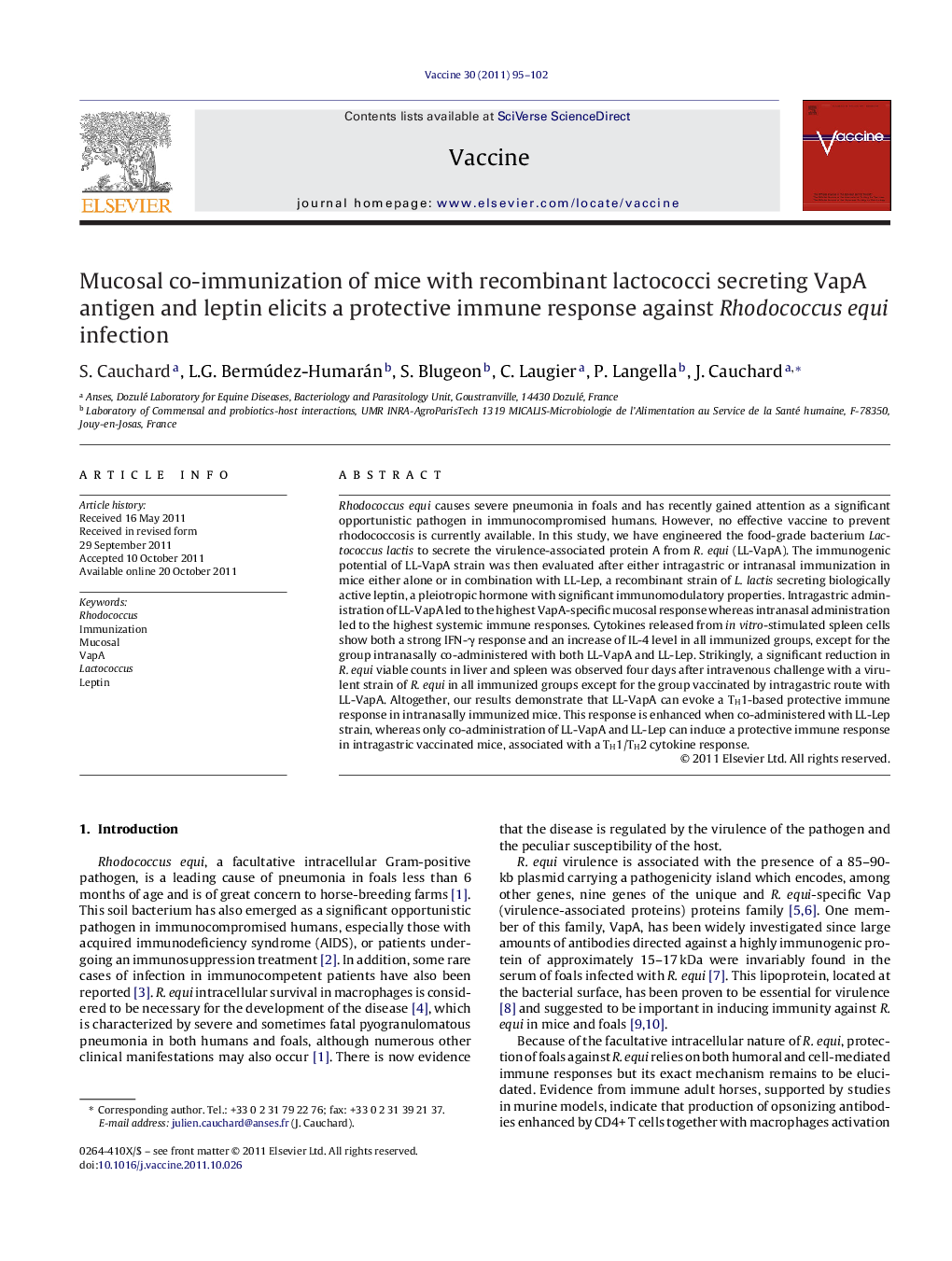| Article ID | Journal | Published Year | Pages | File Type |
|---|---|---|---|---|
| 2402863 | Vaccine | 2011 | 8 Pages |
Rhodococcus equi causes severe pneumonia in foals and has recently gained attention as a significant opportunistic pathogen in immunocompromised humans. However, no effective vaccine to prevent rhodococcosis is currently available. In this study, we have engineered the food-grade bacterium Lactococcus lactis to secrete the virulence-associated protein A from R. equi (LL-VapA). The immunogenic potential of LL-VapA strain was then evaluated after either intragastric or intranasal immunization in mice either alone or in combination with LL-Lep, a recombinant strain of L. lactis secreting biologically active leptin, a pleiotropic hormone with significant immunomodulatory properties. Intragastric administration of LL-VapA led to the highest VapA-specific mucosal response whereas intranasal administration led to the highest systemic immune responses. Cytokines released from in vitro-stimulated spleen cells show both a strong IFN-γ response and an increase of IL-4 level in all immunized groups, except for the group intranasally co-administered with both LL-VapA and LL-Lep. Strikingly, a significant reduction in R. equi viable counts in liver and spleen was observed four days after intravenous challenge with a virulent strain of R. equi in all immunized groups except for the group vaccinated by intragastric route with LL-VapA. Altogether, our results demonstrate that LL-VapA can evoke a TH1-based protective immune response in intranasally immunized mice. This response is enhanced when co-administered with LL-Lep strain, whereas only co-administration of LL-VapA and LL-Lep can induce a protective immune response in intragastric vaccinated mice, associated with a TH1/TH2 cytokine response.
► Lactococcus lactis (LL) as a mucosal vaccine delivery vector against rhodococcosis. ► L. lactis for efficient production and secretion of Rhodococcus equi VapA antigen. ► Immune response and protection in mice after oral or nasal inoculations were assessed. ► Co-immunization of LL secreting VapA and leptin induced a protective immune response.
